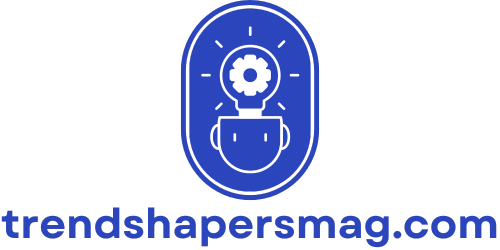Table of Contents
ToggleManaging income effectively is crucial for achieving financial stability and reaching long-term goals. With the rising cost of living and fluctuating economic conditions, individuals and families need to take control of their finances like never before. Income management isn’t just about budgeting; it involves strategic planning, smart investing, and making informed decisions that align with personal values and aspirations.
As people navigate their financial journeys, they often face challenges such as unexpected expenses and debt. Understanding the principles of income management can empower them to create a sustainable financial future. By prioritizing savings, minimizing unnecessary expenses, and exploring diverse income streams, anyone can enhance their financial well-being and build a more secure life.
Understanding Income Management
Income management involves strategic oversight and utilization of income to secure financial stability. Effective income management enhances personal financial health, especially amid fluctuating economic conditions.
Definition and Importance
Income management refers to the processes of tracking, planning, and optimizing income for effective use. It plays a crucial role in achieving financial goals, as it enables individuals to allocate funds wisely, allocate resources in accordance with priorities, and prepare for future uncertainties. Understanding income management empowers individuals to navigate rising living costs and unexpected financial challenges, fostering resilience and promoting a sustainable financial future.
Key Principles of Income Management
- Budgeting: Budgeting involves creating a detailed financial plan that outlines expected income and expenses, assisting in tracking spending habits.
- Saving: Saving emphasizes setting aside a portion of income for emergencies, goals, or investments. Savings stabilize finances and offer a buffer against unforeseen expenses.
- Investing: Investing pertains to earmarking funds in financial instruments to generate potential returns. It grows wealth over time and contributes to financial independence.
- Debt Management: Debt management focuses on minimizing and effectively managing liabilities. Reducing high-interest debt enhances financial flexibility.
- Diversifying Income Sources: Diversifying income sources spreads financial risk, ensuring that an individual doesn’t rely solely on one source of income.
- Regular Review and Adjustment: Regularly reviewing financial plans allows individuals to adapt to changing circumstances, ensuring that financial goals remain achievable.
Strategies for Effective Income Management

Effective income management requires strategic approaches to budgeting, saving, and investing. Implementing structured methods can enhance overall financial stability.
Budgeting Techniques
- Zero-Based Budgeting: This technique allocates every dollar of income towards expenses, savings, or debt repayment, ensuring no unused funds remain.
- 50/30/20 Rule: Allocate 50% of income for necessities, 30% for discretionary spending, and 20% for savings and debt repayment, promoting balance.
- Envelope System: Use cash for specific categories by placing money in envelopes, controlling overspending and encouraging mindful purchases.
- Digital Budgeting Tools: Utilize apps like Mint or YNAB (You Need a Budget) for real-time tracking of expenses and income, enhancing accountability.
Saving and Investing
- Emergency Fund: Save three to six months of living expenses in a high-yield savings account to cover unexpected costs, ensuring financial security.
- Automated Savings: Set up automatic transfers to savings accounts each payday, fostering consistency in saving without manual intervention.
- Retirement Accounts: Contribute to 401(k) or IRA accounts for tax-advantaged growth, preparing for a stable retirement future.
- Diversified Investment Portfolio: Invest in a mix of assets like stocks, bonds, and real estate to mitigate risk and enhance potential returns, boosting financial growth.
These strategies promote a proactive approach to income management, allowing individuals to navigate financial landscapes effectively.
Tools and Resources for Income Management
Utilizing the right tools enhances income management efficiency. Various software and applications assist in budgeting, tracking expenses, and planning for financial goals.
Financial Management Software
Financial management software streamlines income tracking and budgeting. Popular options include:
- QuickBooks: Offers comprehensive solutions for budgeting and expense tracking, beneficial for both individuals and small businesses.
- Mint: Provides real-time insights into spending habits, linking bank accounts, and categorizing transactions automatically.
- YNAB (You Need A Budget): Focuses on proactive budgeting strategies, encouraging users to allocate every dollar toward specific expenses and savings goals.
- Personal Capital: Combines budgeting functions with investment tracking, allowing users to oversee overall financial health effectively.
These tools provide detailed reports, customizable alerts, and goal-setting features, supporting informed financial decisions.
Online Budgeting Apps
Online budgeting apps simplify expense management and promote disciplined spending. Key options include:
- EveryDollar: Utilizes a straightforward drag-and-drop interface for creating zero-based budgets quickly.
- PocketGuard: Analyzes income and expenses to determine how much money is available for discretionary spending.
- GoodBudget: Offers an envelope budgeting system through a digital format, enabling users to plan budgets across different categories.
- Wally: Tracks expenses with advanced scanning features, allowing easy input of receipts and automatic categorization.
These apps help individuals gain insights into their spending habits and adjust budgets accordingly, promoting long-term financial stability.
Common Challenges in Income Management
Income management involves several challenges that can hinder financial stability. Understanding these obstacles is essential for developing effective strategies to overcome them.
Impulse Spending
Impulse spending presents a significant barrier to effective income management. Individuals often make unplanned purchases due to emotional triggers, advertising influences, or peer pressure. This spending can quickly derail budgets and undermine savings goals. Addressing impulse spending involves setting strict personal spending limits, creating a shopping list before purchases, and implementing a waiting period for non-essential items. By recognizing triggers and establishing boundaries, individuals can regain control over their financial decisions.
Lack of Financial Knowledge
A lack of financial knowledge significantly impairs income management efforts. Many individuals struggle to understand essential concepts like budgeting, investing, and debt management. This gap in knowledge can lead to poor financial choices, including high-interest debt accumulation and inadequate savings. To combat this challenge, individuals must actively seek educational resources such as workshops, online courses, and financial literacy programs. By enhancing their financial understanding, individuals can make informed decisions that align with their income management goals.
Effective income management is crucial for navigating today’s financial landscape. By adopting strategic approaches to budgeting saving and investing individuals can build a more secure financial future. Utilizing tools and resources enhances efficiency while addressing common challenges like impulse spending and lack of financial knowledge.
Prioritizing financial education and disciplined decision-making empowers individuals to take control of their finances. With the right strategies in place anyone can achieve greater financial stability and resilience. Embracing these principles paves the way for long-term success and peace of mind in managing income.







